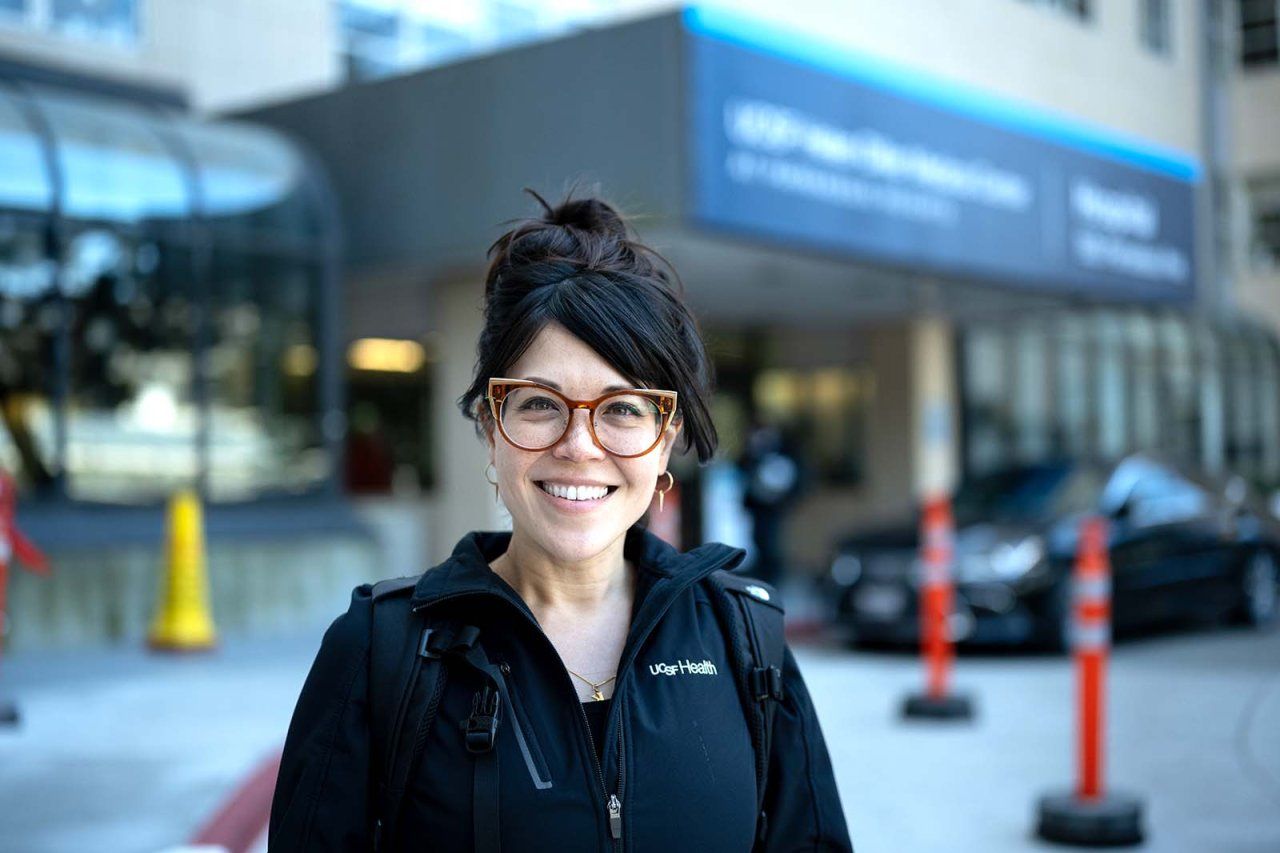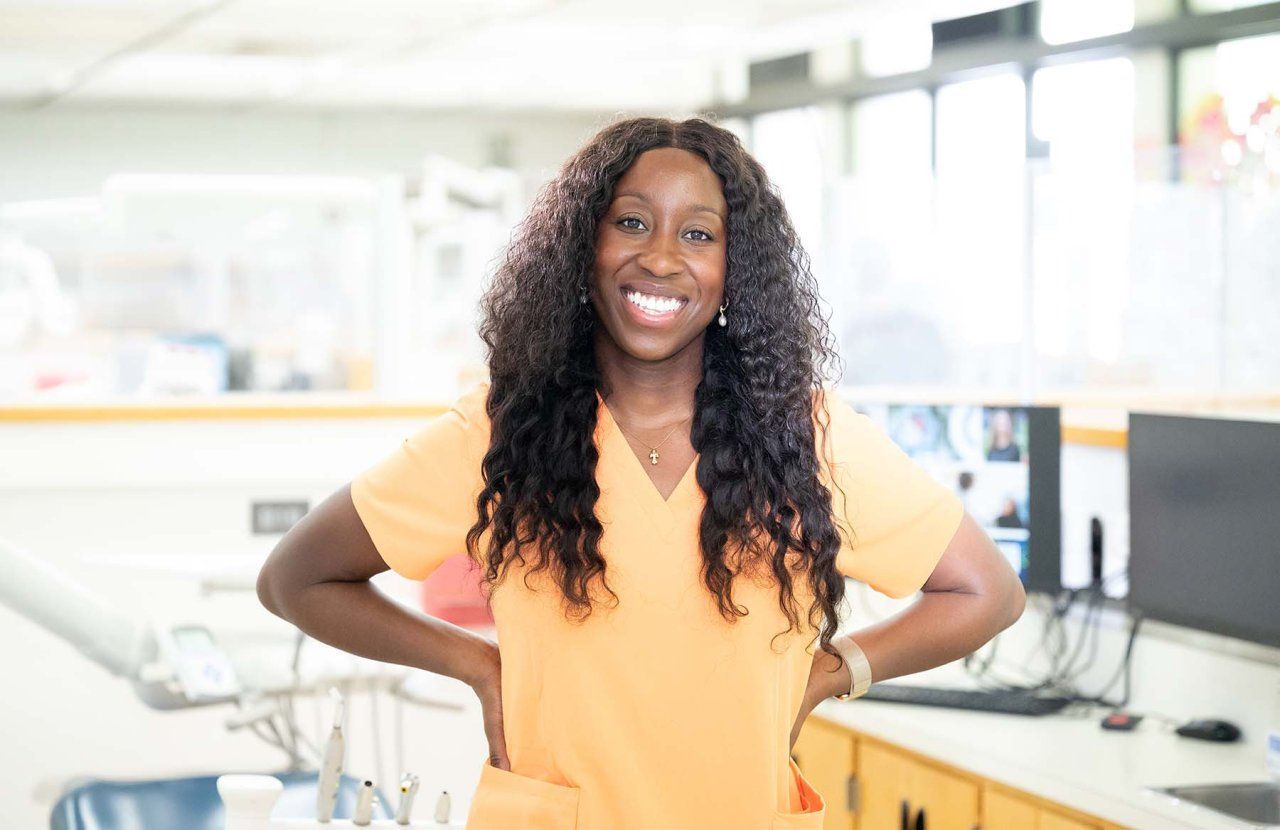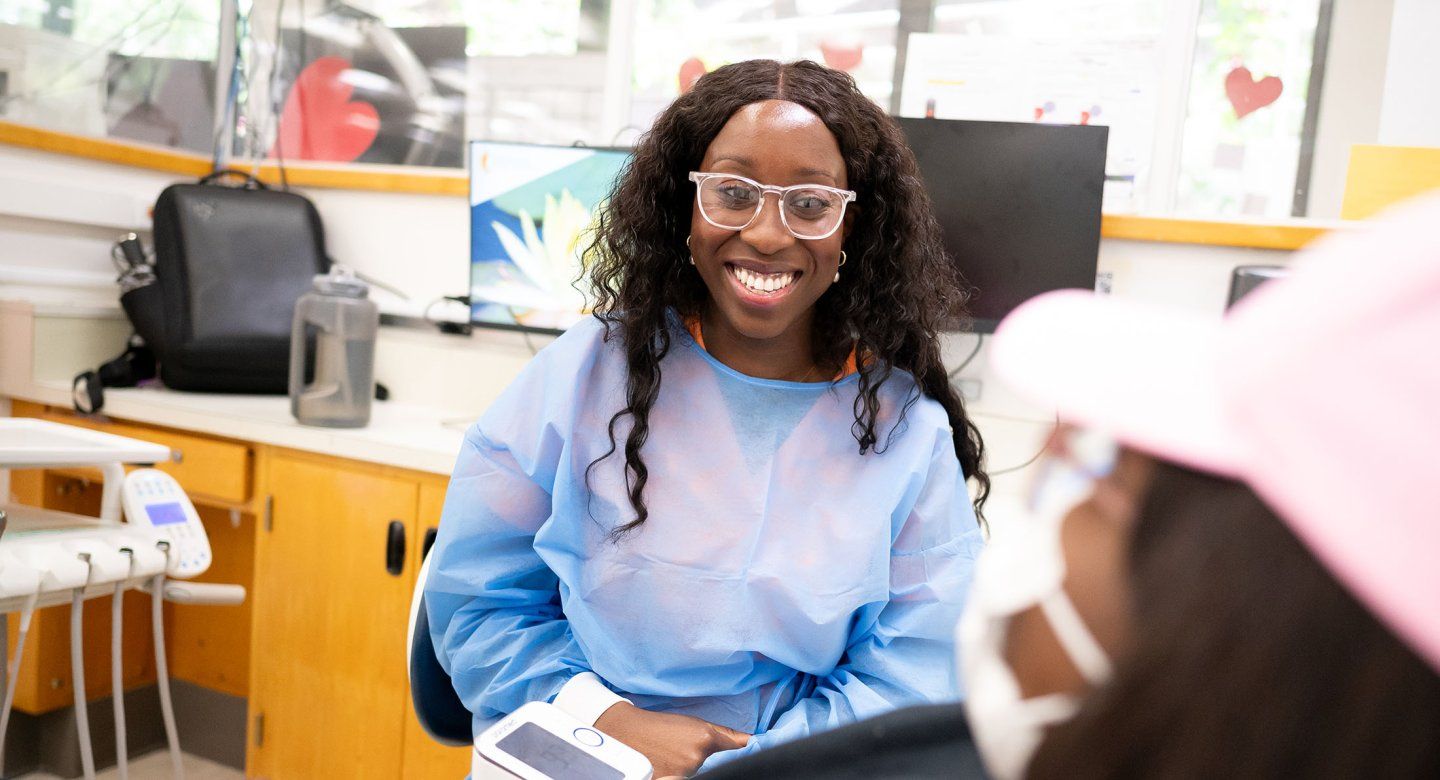UCSF Learners Use Foster Youth Experience to Fuel Passion for Health Care
Life as a former foster youth isn’t easy, but two students at UC San Francisco have managed to overcome the countless challenges from their experiences.
Kuanie Julin and Paóla Benefo have both come a long way from foster care – though their journeys to UCSF have been very different.
‘You’re a case study’
For Julin, it began when she was taken to a group home at 10.
The Chandler, Ariz. native and her sister were removed from an abusive situation at home that landed both of her parents in prison for years. Julin’s mom was deported after completing her sentence because she was a legal immigrant without U.S. citizenship.
“I just kind of pretended like stuff didn’t happen when I was in a group home as a coping mechanism,” she said.
They were there for three years before going back to live with Julin’s father, who was saddled with the challenges of financially supporting his family after his release from prison.
I’m a strong person, but there’s still stigma and shame associated with being a foster kid.
“Once my father regained custody, he was a devoted father. He lost a good job because of prison,” she said. “He almost lost the house. He had to take a trash job. He was making $30,000 a year supporting three kids and his incarcerated wife, while juggling ongoing legal fees related to court cases. The financial struggles were pervasive, and limited our opportunities. My father was stigmatized from being able to earn a decent living because he had a prison record. He carried that shame and it hurt to see that.”
That related disgrace can last a lifetime, Julin added.
“I’m a strong person, but there’s still stigma and shame associated with being a foster kid,” she said. “When I talk to people now, they say, ‘You’re a statistic. You’re a case study.’”
Fueled by her experience, Julin obtained two undergraduate degrees and a master’s degree in addition to starting a career outside of health care before coming to UCSF.

“For me, going to school and having a career was my main focus as the only way to escape my situation” she said. “When kids leave the foster system, it can go one of two ways. You can be like me where you turn on blinders and choose success as a driver. That’s what I did.” On the other side of the coin, Julin’s older sister battled substance abuse in the years following her foster care experience – one of many with a similar story.
In 2021, there were over 390,000 children and youth in foster care in the U.S., according to the Child Welfare Information Gateway. While 93% of former foster youth state they want to attend college, just 4% obtain a bachelor’s degree by the age of 26.
Even fewer earn graduate-level degrees.
In Julin’s case, it wasn’t a career choice that kept her out of medical school, it was the cost. She simply couldn’t afford the application fees, living expenses and tuition, instead focusing on programs that offered full merit-based scholarships and stipends.
Now, Julin is weeks from the finish line in the UCSF School of Nursing’s two-year Adult-Gerontology Primary Care Nurse Practitioner program. She’s also served as a cardiovascular and thoracic surgery nurse at UCSF Medical Center at Parnassus Heights for the last eight years.
After her brief detour outside of health care, Julin gravitated back to the field because of her foster experience.
“Most of the kids in the system, their parents were in prison too,” Julin said. “Or they were taken away from their parents for neglect…or their parents were drug addicts. It really informed my experience. That’s how I ended up in healthcare. I wanted to work with vulnerable populations because I understand what it feels like to be in that position.”
Inspired by the experience
Benefo’s foster youth experience started with a book fair.
The third-year UCSF School of Dentistry student was in third grade when she tried to use her mom’s credit card to purchase a book.
“When they called her asking for permission to use the credit cards to buy the books, she didn't really understand English to the extent they needed because she was a recent immigrant,” Benefo said. “She understood she needed to come to the school to get her credit card and discipline me.”
Benefo’s mom, who immigrated from Ghana with a brief stopover in Europe, had moved her entire family to Columbus, Ohio in 2000. Back in West Africa, “discipline is more physical,” according to Benefo. “How my parents grew up, teachers were allowed to discipline children by beating them with a tree branch or a belt,” she said. “To her, that’s what the definition of [discipline] meant.”

Her mom ended up in the back of a squad car after disciplining Benefo with a belt.
“This is such a sad moment for me,” Benefo said of what happened next.
“The school buses were leaving and I was asking to go home,” she said. “They directed me to a police car. I hear to my left my mom in the back of the police car, and she was screaming to me in our language (Akan), ‘Paóla, see what they’re doing to me. They’re taking me away from you. I can't be your mom anymore.’”
While her mom’s case went through the court system, Benefo was placed in a home with a Black American family. “It was quite different,” she recalled. “I grew up at home, only speaking my native language. I lost a lot of my native language because I was with them for so long.” The traditional American Midwestern food threw her for a loop too, as she was used to African and Italian dishes at home.
It became very clear that people knew not to bring me around. All they knew was that my mom left in a police car and went to jail.”
She stayed in foster care for a year before being released into her uncle’s care.
During that time – and many of the subsequent years – relationships with friends and neighbors frayed because of the stigma associated with her situation.
“For the year that I was [in foster care], the community I was used to being around just didn't communicate with me,” Benefo said. “When I came back to church…the children still weren’t speaking to me. It became very clear that people knew not to bring me around. All they knew was that my mom left in a police car and went to jail. Not having the full story, it created a breeding ground for people and their kids to say I was not the person to hang out with because I was the person to put someone in jail.”
That’s when Benefo, like Julin, doubled down on school.
“It made me academically focused because I didn’t have a choice,” she said.
Now 27, Benefo plans to use her UCSF education to give back to her community and beyond, hoping to fill the language gap in health care. “I wanted to work with my hands, but also take people out of pain that they’re in,” she said. “If you’re a refugee or undocumented, that’s a barrier to helping someone understand your pain.”
Guardian Scholars provides a boost
Benefo and Julin had already overcome the odds in getting to UCSF, but transitioning to graduate-level studies doesn’t mean their foster experience is in the rear-view mirror.
That’s where the UCSF Guardian Scholars Program comes in.
“What’s important is that their strengths are seen, instead of the opportunities that were missed,” said Tiffany Lam, UCSF Student Success director and programming lead for Guardian Scholars. “It’s a myth that graduate and professional school students don’t need assistance. The students can benefit from that support and so much more.”
Our goal is to uplift and support their continued success.”
The program, state-funded and founded at UCSF just last year, supports UCSF students with prior experience in foster care through a variety of resources like case management, priority on campus housing, community-building events, and assistance with common household items and moving expenses. There’s also direct financial assistance, in partnership with UCSF Student Financial Services, to assist students with emergency, professional development and technology expenses.
“It’s nice to know there's a program that exists that doesn’t care about your background and your perceived deficit because of society,” Julin said. “You should be able to work your way out of your situation.”
In addition to scrubs and toiletries, the program has also connected Benefo with mentors in dentistry from around the country. “I’ve met a wide variety of dentists in their field doing really cool research, public advocacy or serving the underserved,” she said.
Julin has served as Guardian Scholars’ first student ambassador, providing a student voice on the initial stages of developing the program. “Being an ambassador for the Guardian Scholars Program is also part of my healing journey,” she said. “Sharing this experience openly is difficult because it is so private and not part of the traditional, existing dialogue when it comes to equity in education. However, it is important to create awareness of access barriers to education for foster youth and the challenges they have overcome so they have equal opportunities to excel like any other kids instead of relegating them to mere ‘statistics.’”
The Guardian Scholars Program or a similar foster youth support program is available for foster youth on every University of California and California State University campus. At UCSF, it’s open to all students with prior involvement in foster care at any point in their lives. Students can register with the program at any time.
Before 2023, most foster youth programs were funded through private donors and grants.
“Our program really tries to provide student centered services,” Lam said. “We acknowledge the success that they have already had in already being here at UCSF. Our goal is to uplift and support their continued success. They have so much to offer to their program and their future as a professional based on their life experiences.”
